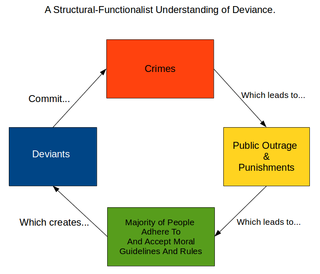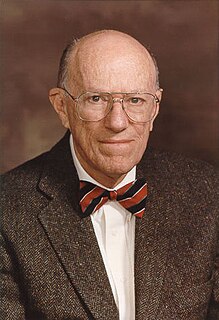A psychiatrist is a physician who specializes in psychiatry, the branch of medicine devoted to the diagnosis, prevention, study, and treatment of mental disorders. Psychiatrists are medical doctors and evaluate patients to determine whether their symptoms are the result of a physical illness, a combination of physical and mental ailments or strictly mental issues. Sometimes a psychiatrist works within a multi-disciplinary team, which may comprise clinical psychologists, social workers, occupational therapists, and nursing staff. Psychiatrists have broad training in a bio-psycho-social approach to assessment and management of mental illness.

The American Psychiatric Association (APA) is the main professional organization of psychiatrists and trainee psychiatrists in the United States, and the largest psychiatric organization in the world. Its some 38,800 members are mainly American but some are international. The association publishes various journals and pamphlets, as well as the Diagnostic and Statistical Manual of Mental Disorders (DSM). The DSM codifies psychiatric conditions and is used worldwide as a guide for diagnosing disorders.

There was systematic political abuse of psychiatry in the Soviet Union, based on the interpretation of political opposition or dissent as a psychiatric problem. It was called "psychopathological mechanisms" of dissent.

Forensic psychiatry is a subspeciality of psychiatry and is related to criminology. It encompasses the interface between law and psychiatry. According to the American Academy of Psychiatry and the Law, it is defined as "a subspecialty of psychiatry in which scientific and clinical expertise is applied in legal contexts involving civil, criminal, correctional, regulatory, or legislative matters, and in specialized clinical consultations in areas such as risk assessment or employment." A forensic psychiatrist provides services – such as determination of competency to stand trial – to a court of law to facilitate the adjudicative process and provide treatment, such as medications and psychotherapy, to criminals.
Peter Roger Breggin is an American psychiatrist and critic of shock treatment and psychiatric medication and Covid-19 response. In his books, he advocates replacing psychiatry's use of drugs and electroconvulsive therapy with psychotherapy, education, empathy, love, and broader human services.
William Walter Menninger, known by his peers as "Dr. Walt", is an American psychiatrist in the third generation of the Menninger family, which has run the Menninger Foundation since 1925. He served as dean of the Karl Menninger School of Psychiatry and Mental Health Science and he was the CEO of the Menninger Clinic from the 1993 to 2001. During his tenure as CEO, the clinic began negotiations to move from Topeka, Kansas, to Houston, Texas, where it is affiliated with Baylor College of Medicine.

Forensic social work is the application of social work to questions and issues relating to law and legal systems. This specialty of the social work profession goes far beyond clinics and psychiatric hospitals for criminal defendants being evaluated and treated on issues of competency and responsibility. A broader definition includes social work practice which in any way is related to legal issues and litigation, both criminal and civil. Child custody issues, involving separation, divorce, neglect, termination of parental rights, the implications of child and spousal abuse, juvenile and adult justice services, corrections, and mandated treatment all fall under this definition. Forensic social worker may also be involved in policy or legislative development intended to improve social justice.

Leon Eisenberg, was an American child psychiatrist, social psychiatrist and medical educator who "transformed child psychiatry by advocating research into developmental problems"
Robin Skynner was a psychiatric pioneer and innovator in the field of treating mental illness.
Alan Abraham Stone is the Touroff-Glueck Professor of Law and Psychiatry (Emeritus) at the Harvard Law School. His writing and teaching has focused on professional medical ethics, issues at the intersection of law and psychiatry, and the topic of violence in both law and in psychiatry. Stone served as president of the American Psychiatric Association. He also served for a number of years as the film critic for the Boston Review.
Paul Stuart Appelbaum is an American psychiatrist and a leading expert on legal and ethical issues in medicine and psychiatry.
Psychiatry is the medical specialty devoted to the diagnosis, prevention, and treatment of mental disorders. These include various maladaptations related to mood, behaviour, cognition, and perceptions. See glossary of psychiatry.
Pamela Jane Taylor, is a British psychiatrist and academic, who specialises in the links between psychosis and violence, and mental and physical health in the criminal justice system. Since 2004, she has been Professor of Forensic Psychiatry in the Department Institute of Psychological Medicine and Clinical Neurosciences of Cardiff University.

The Royal Australian and New Zealand College of Psychiatrists (RANZCP) is the principal organisation representing the medical specialty of psychiatry in Australia and New Zealand and has responsibility for training, examining and awarding the qualification of Fellowship of the College (FRANZCP) to medical practitioners.
Political abuse of psychiatry, also commonly referred to as punitive psychiatry, is the misuse of psychiatry, including diagnosis, detention, and treatment, for the purposes of obstructing the human rights of individuals and/or groups in a society. In other words, abuse of psychiatry is the deliberate action of having citizens psychiatrically diagnosed who need neither psychiatric restraint nor psychiatric treatment. Psychiatrists have been involved in human rights abuses in states across the world when the definitions of mental disease were expanded to include political disobedience. As scholars have long argued, governmental and medical institutions code menaces to authority as mental diseases during political disturbances. Nowadays, in many countries, political prisoners are sometimes confined and abused in psychiatric hospitals. The abuse of psychology is used to conceal the repression of dissent, and evade prohibitions against punishment outside of due process protections.
The following outline is provided as an overview of and topical guide to psychiatry:

In the Soviet Union, systematic political abuse of psychiatry took place and was based on the interpretation of political dissent as a psychiatric problem. It was called "psychopathological mechanisms" of dissent.

Eric M. Plakun is an American psychiatrist, psychoanalyst, researcher and forensic psychiatrist. He is the current Medical Director/CEO at the Austen Riggs Center in Stockbridge, MA. Plakun's primary interests include the value of and evidence base for psychosocial treatments and the diagnosis, treatment, longitudinal course and outcome of patients with borderline personality disorder and treatment resistant disorders. Plakun has been widely published and quoted in the media on psychotherapy and psychiatry, including in The New York Times and The Globe and Mail. He has appeared in the media to discuss his psychiatric work on WAMC, the Albany, New York affiliate of NPR. and on CBS 60 Minutes. His psychiatric research has been widely cited.

Michael Alan Schwartz is an American academic and psychiatrist based in Austin, Texas. In 2018 Schwartz retired as Clinical Professor of Psychiatry and Joint Professor of Humanities in Medicine at the Texas A&M School of Medicine. He is currently and Adjunct Professor at this medical school. His work has focused on advancing pluralistic, person and people-centered approaches to psychiatric assessment, care and treatment.
J. Paul Fedoroff is a Canadian forensic psychiatrist, sexologist, and researcher who specializes in treating individuals with paraphilic disorders and/or individuals with developmental delay. He is now the first director of the Sexual Behaviours Clinic (SBC) at the Institute of Mental Health Research at the Royal Ottawa Mental Health Centre located in Ottawa, Ontario. He is a full professor of forensic psychiatry, criminology, and law at the University of Ottawa.






